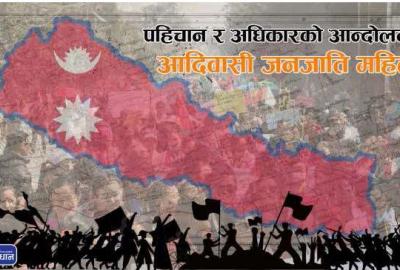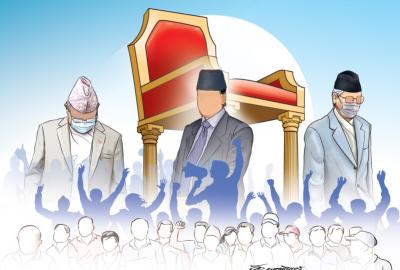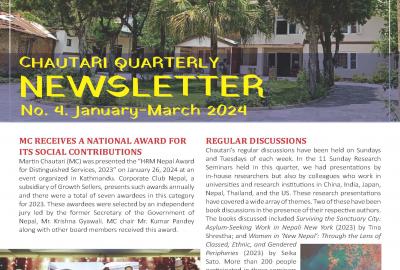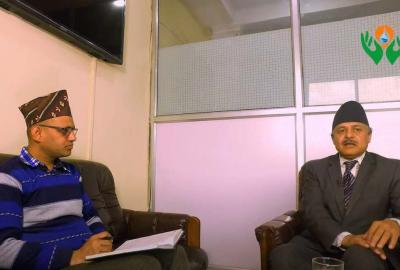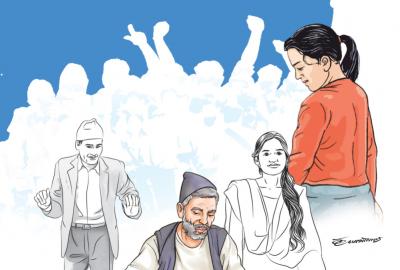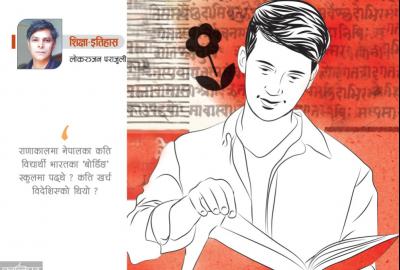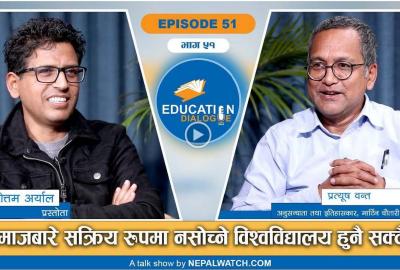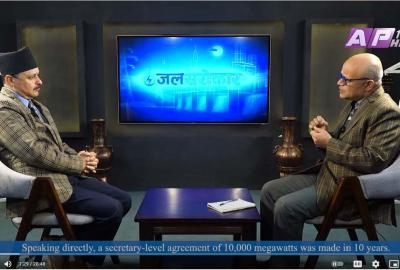
Quick facts
Born in August 1973 in Kathmandu
Went to Lalitpur Madhyamik Vidhyalaya, Lalitpur
Graduate of Padma Kanya College, Kathmandu, post-graduate of University of Glasgow, Scotland
PhD from London School of Economics and Political Science (LSE), England
Mother to Abha Shakya

Among my strongest childhood memories is seeing my mother going through a crisis and eventually finding her own feet. Ironically, it was around this time that I began to excel in my studies. School grades aside, I became a voracious consumer of written words, drawn to a virtual world away from my everyday reality. I read everything and anything, emptying the shelves of my school library, friends’ family collections and local book shops. I remember the 1990 regime change almost in terms of my book universe: BP Koirala and Parijat’s works (banned during the Panchayat regime) showed me a different side of being Nepali. That was also when I was considered old enough to join British and Indian libraries in Kathmandu. These opened up a new world for me.
I was still almost a child when I took my first job with Save the Children Fund (UK) and then with UNICEF, two full-time jobs I held while studying for full-time undergraduate degrees. I topped Padma Kanya College both in my IA and BA and won two Mukti Rajeswori medals for the highest scores in economics. For IA, I was also awarded the Aishwarya Vidhya Padak (Queen’s Medal) as the nationwide female topper. For BA, I was awarded the Arjun medal for nationally topping the paper on Nepali language and literature across all faculties in all colleges.
Money-wise, I was not expected to support my family but the idea of “standing on your own feet”, especially as a woman who will not inherit family property, was deeply etched. What started as a source of “pocket money” quickly became a way of life. My workplace became the grounds where I acquired initial research, writing, and problem-solving skills. I had prepared myself well when I went to the University of Glasgow for my Master’s degree. I came back with the class prize.
PhD (with the London School of Economics and Political Science) was a new frontier for me, and it took me a long time to find my voice as a scholar. Amid my writing struggle, I put myself up as a contestant in the World Bank’s YP programme, for which they annually recruit 32 young professionals through a fiercely competitive process of elimination from an applicant pool of over 10,000 exceptional people worldwide. I worked to develop the idea of export competitiveness and industrial clusters in its initial phase which have now become its major area of business.
When I was offered the job in the World Bank, I had said that this was my chance to explore and understand the world better, and I gave myself five years for that. By the fifth year when I became entitled to apply for a two-year sabbatical, I had completed and defended my dissertation at LSE. I joined the University of Oxford and later shifted to South Africa to teach. Then I moved back to my home region with a job at South Asian University, from where I sent in my resignation to the World Bank in Washington DC.

Mallika Shakya (middle) speaking on ‘Poetic Imagining(s) of Southasia: Writing Nations through Sensibilities of Resistance’ at South Asian University in New Delhi.
South Africa is where I found my academic voice and also my peace. It is not always easy to disentangle ourselves from the bureaucracies that chain us to our immediate livelihoods, but we must. This has remained my primary intellectual and personal resolve. At one level, we grow up being shaped by the histories that go way beyond our births, and our legacies—however big or small—will shape the world beyond the span of our mortal lives. At another level, our immediate circles do matter, but we will do well by reminding ourselves that we are members of a bigger macrocosm. That our duties and responsibilities should be defined against this broader temporality and context is my firm belief. For me, anthropology (or sociology) has been about finding ways to look at a given social and economic query through these two lenses.
My book “Death of an Industry” asked why so many workers whose livelihoods depended on the garment industry had absolutely no voice in a country whose state and civil society exaggeratedly claimed itself to be democratic. We have been told time and again that democracy entails accountability and empowers the poor, but during that moment of crisis, Nepal came across as a brutally coercive, rent-seeking state which denied basic dignity to its subaltern citizens. We saw its recurrence again during the coronavirus pandemic. I study this collaboratively, joining hands with medical anthropologists, pharmacologists and microbiologists. I begin to understand that “development” is just a tiny episode within the extended history of (crypto) colonization and civilizational subjugation. We need to be honest about the limits of the foreign aid while thinking about human aspirations to prosper and share.
In joining South Asian University as the only Nepali woman, my efforts have been to look for ways to initiate cross-border conversations and solidarities without being caught in the power games of nation-state-pageanting. What national bureaucracies showcase as “success” or “good citizen” or even a “leader” have almost nothing to do with what ordinary people feel and what their aspirations are. Yet we are conditioned to put the former above the latter. Such coercive imagination of predatory nationhood has been on the rise, especially since the end of the Cold War, which has unleashed a new corporatist wave allowing a new round of elite capture of the nation-states.
I don’t think there is much conversation on this, at least within the social sciences. Increasingly I feel that poetry, fiction and arts are mirrors of our times, and we need to take these seriously as a social archive. In my forthcoming publication, I bring together social scientists and literary scholars from around South Asia to discuss their take on the nation-states they are members of. These conversations are insightfully honest about the traumas and disillusionments imposed by coercive and exclusionary nationhood. I hope conversations like these will help us develop methods through which to question the hegemonic paradigms of nationalism and give voice to disenfranchised citizens living in the margins.

About her
Barbara Harriss-White (Teacher)

By leaving the World Bank, Mallika showed that a life in research and teaching was worth more to her than a high salary. To make the change she joined a team in South Africa which gave her unparalleled experience. Her book results from having treated businesspeople and workers in Nepal seriously and with equal respect. By joining South Asian University, she has reaffirmed her commitment to learning without borders. With Abha she is fulfilled as a mother as well. She is a truly remarkable person!
Keith Hart (Teacher)

Mallika Shakya is loyal to her family, friends and country. She has great personal integrity and wide experience of the world—Britain, US, South Africa, India. Her book, Death of an Industry, is a path-breaking contribution to understanding Nepal. She is a fine teacher. Maybe she worries too much.
Sudhir Shetty (Colleague)

Mallika is among the very few women (or men) from Nepal to have been accepted into the World Bank’s highly-competitive Young Professionals Program. At the Bank, her intellectual contributions focused on deepening and applying concepts around export competitiveness and industrial clusters. Her work at the World Bank and more recently in academia highlight her deep interest in development and her abiding commitment to social inclusion.
A shorter version of this profile was published in the print edition of The Annapurna Express on June 16.
published on 2022-06-20
Source: https://theannapurnaexpress.com/news/mallika-shakya-the-daughter-who-found-her-own-feet-6603
